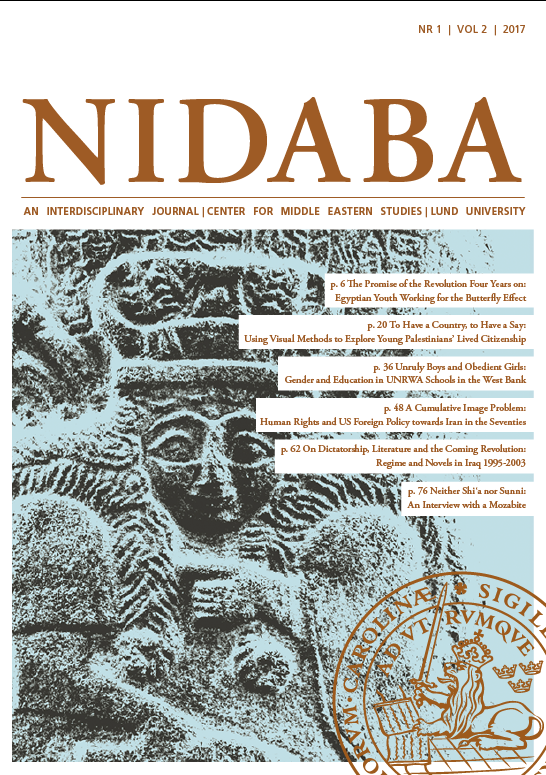Abstract
Almost 70 years after the Palestinian displacement, many Palestinian refugee youth in the Middle East are still in schools run by a UN agency, the United Nations Relief and Work Agency for Palestine Ref- ugees in the Near East (UNRWA). As other educational systems, UNRWA schools are not gender neu- tral. In the West Bank refugee camps where this study was conducted, girls were often more engaged in their schooling and achieved better than boys. Building on qualitative interviews and observations in schools and in families, this article investigates such gendered engagements in school. e main argument is that di erent cultural expectations on boys and girls and di erent imaginations of their futures (which are related to the present economic and political context) make boys and girls engage di erently in their schooling. Because of a dire economic situation, women’s wage labor is increasingly valued and therefor also higher education for women. At the same time, the crisis adds to ambivalences to male youth who traditionally has been actively engaged in resistance activities. With policy changes in UNRWA that aims to keep politics out of school, boys nd school increasingly pointless. eir local social networks are, on the other hand, very valuable as to get employed. Despite the stalemate in the occupied territories, Palestinian gender relations are changing.
Authors retain copyright and grant the journal right of first publication with the work simultaneously licensed under a Creative Commons Attribution License that allows others to share the work with an acknowledgement of the work's authorship and initial publication in this journal.
Authors are able to enter into separate, additional contractual arrangements for the non-exclusive distribution of the journal's published version of the work (e.g., post it to an institutional repository or publish it in a book), with an acknowledgement of its initial publication in this journal.
Authors are permitted and encouraged to post their work online (e.g., in institutional repositories or on their website) prior to and during the submission process, as it can lead to productive exchanges, as well as earlier and greater citation of published work (See The Effect of Open Access).
The journal provides open access to all accepted manuscripts in hopes of facilitating an exchange of knowldge and informed discussion about the Middle East. Publishing with Nidaba, authors agree to the terms of the Creative Commons Attribution-NonCommercial-NoDerivatives 4.0 International License, which allows others to share the work with an acknowledgement of the work's authorship and initial publication in this journal. Authors retain the copyright to their manuscript and grant the journal the right of first publication.
The content of this journal is licensed under a Creative Commons Attribution-NonCommercial-NoDerivatives 4.0 International License.

